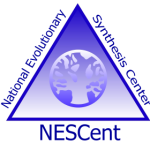
In the name of full disclosure I have to say that I penned one of the chapters in the book, but rest assured the authors of each section have no financial interest in the publication so there’s no benefit to me in reviewing it other than that you might want to pick up a copy yourselves and share in the inspiration of a generation of dedicated scientist/communicators. This is passionate people writing and packaging science purely for the edification and (hopefully) inspiration of others. We probably shouldn’t be surprised; it’s passion like that drives most folks to blogging in the first place. I’m a relative newcomer to blogging and I have to say that I came away from reading the book with a newfound perspective on the whole concept. Firstly, I recognised that “blogging” is not a clearly-defined writing style. There are all sorts of styles captured from “hard science”, exemplified by Greg Gbur’s piece on the optics of invisibility, to more creative prose like Meera Lee Sethi’s thought-provoking piece on dragonflies. There are even several poems (I have to say that some, like Cuttlefish’s “To a Rat”, are more lyrical than others!). Nor does the blog format tie the authors to current affairs in science. There are plenty of excellent historical narratives, like Captain Skellet’s terrific short piece on how aqua regia (a mixture of nitric and hydrochloric acids) saved two Nobel Prizes from the Nazi’s, and Jeremy Yoder’s grisly and political post about Russian “revivification” experiments, wherein severed heads were mechanically re-perfused with blood by WWII era Russian scientists.
The best thing that I took from Open Lab was a newfound sense of distributed thinking and appreciation of science that I hadn’t grasped before. Many bloggers joke about “hiveminds” and other group-thought concepts, but I took away a genuine feel of that very process from reading about what captures the imagination of my fellow scientists enough to make them want to write about it. In each post I found honesty, passion, imagination, curiosity and creativity shining through in a way that the disinterested “article mill” of traditional journalism is rarely able to match. Sure, if this were other than a self-published anthology the writing could have sometimes used the critical eye of a professional editor, but I’ll take genuine passion over the perfect metaphor anyday, and I appreciate Goldman and Zivkovic’s willingness to leave well enough alone in that respect.
Do yourself a favour: grab a copy of OpenLab and take in one of its digestible chapters a day on the train, in the waiting room or wherever you can find a spare 10 to 15 minutes. If you’re anything like me you’ll find yourself explaining some unbearably cool bit of science you never knew to the poor sod next to you on the plane. Caution: science may be highly addictive!





Awesome review! Thanks!
Thank you so much for this great review!